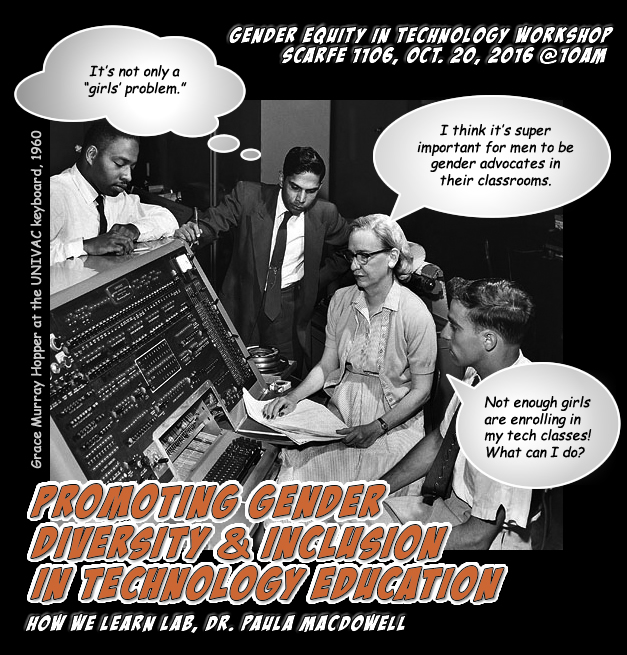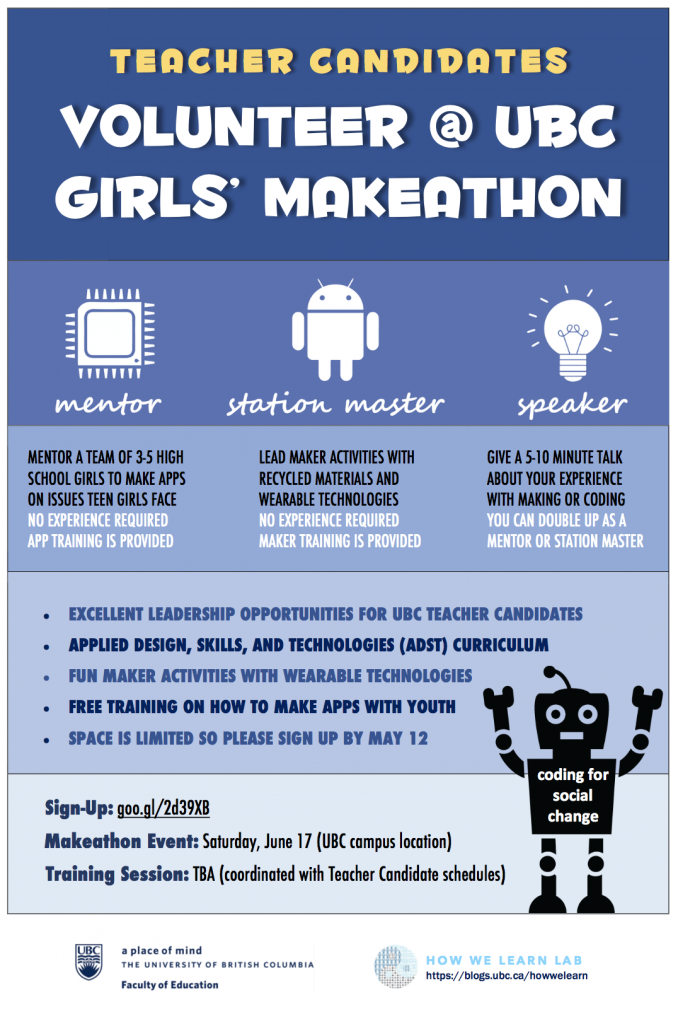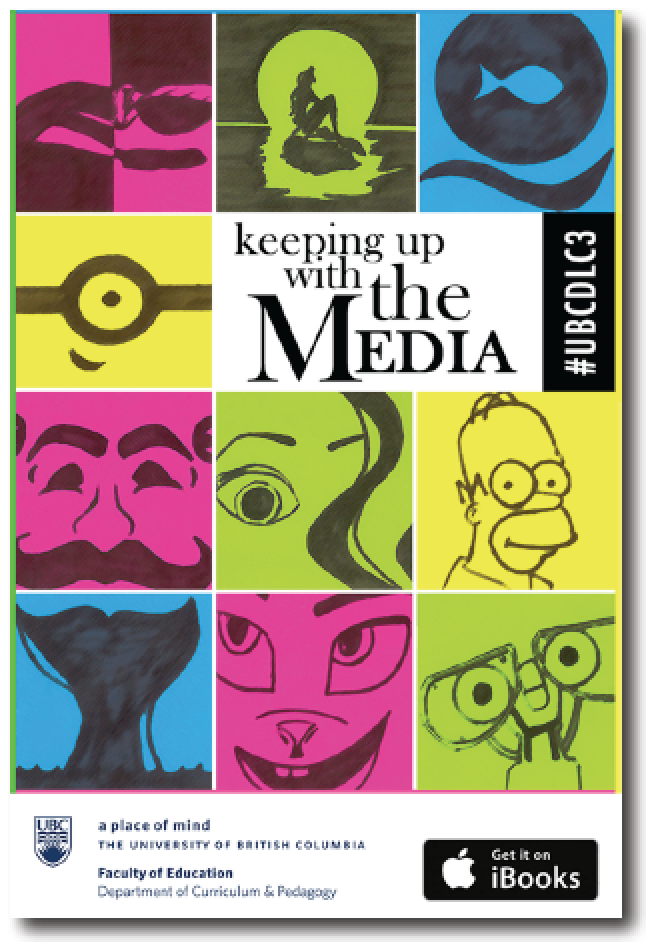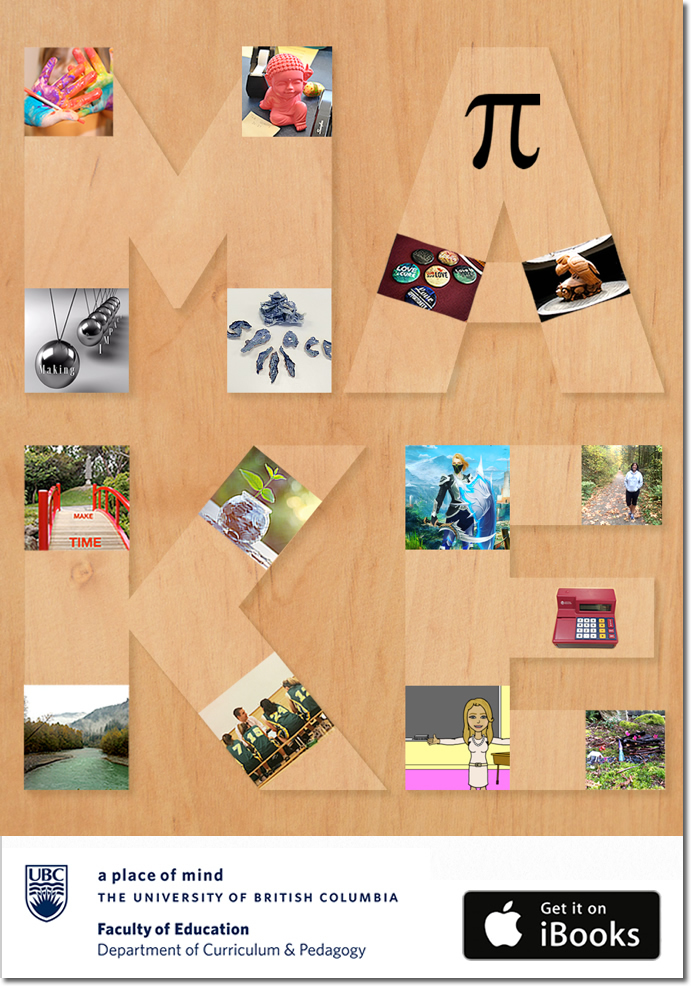
The bad news: tech classrooms lack gender diversity.
The good news: we know how to change this!
Join Paula MacDowell for a workshop that emphasizes the importance of collaborating to build a diverse technology-literate society. We will explore strategies for working together to:
* increase non-traditional enrolment
* create non-stigmatizing learning environments
* design inclusive classrooms that meet learners’ needs
Questions:
1. What do you think about when you think of gender equity in technology?
2. Why is it important to increase participation of minority groups (i.e., gender, race, class, technical ability, and sexual orientation) in technology education classes and programs?
3. Have you observed or experienced a gendering of school subjects?
4. Who or what gave you the most support in your decision to become a technology education teacher?
5. How do we challenge the persistence of gendered learning myths (or “dinosaur discourses”) in technical education contexts (Paule, 2015)?
6. What can be done to improve the enrolment of diverse students in technology education classes during elementary, secondary, and post-secondary schooling?
7. How might we recruit and retain more females into careers as technology education teachers and professors of technology teacher education?
8. How can you make inclusion possible in your classroom (with respect for human dignity, safety, and the environment)?
9. How should we shape the future of technology education for all?
Resources:
Ashcraft, C., DuBow, W., Eger, E., Blithe, S. & Sevier, B. (2013). Male Advocates and Allies: Promoting Gender Diversity in Technology Workplaces. Boulder, CO: National Center for Women & Information Technology.
Online: www.ncwit.org/maleadvocateindustry
Fenwick T (2004) What happens to the girls? Gender, work and learning in Canada’s ‘new economy’, Gender and Education, 16(2), pp. 169-185.
Online: http://dx.doi.org/10.1080/09540250310001690564
Flowers, J. (1995). Women in technology: Increasing the number of female teachers and students. WEPAN National Conference Proceedings: Women in Engineering ProActive Network, June 4-6, Washington, DC.
Online: https://journals.psu.edu/wepan/article/viewFile/57792/57480
Gray, M., & Daugherty, M. (2004). Factors that influence students to enroll in technology education programs. Journal of Technology Education, 15(2), 5-19.
Online: http://scholar.lib.vt.edu/ejournals/JTE/v15n2/gray.html
National Institute for Women in Trades, Technology & Science (Donna Milgram)
Online resource and forum for women in technology and trade careers to network with other women technicians and/or employers, including: job listings, e-mentoring, biographies of women role models, and WomenTechTalk an email discussion group.
Paule, M. (2015) Dinosaur discourses: Taking stock of gendered learning myths. Gender and Education, 27(7), 744-758.
Onine: http://dx.doi.org/10.1080/09540253.2015.1093101
Pullman, A. (2015). Emancipation, marketisation, and social protection: The female subject within vocational training policy in Canada, 1960–1990, Gender and Education, 27(7), 759-775.
Online: http://dx.doi.org/10.1080/09540253.2015.1103840
Ritz, J. M. (2009). A new generation of goals for technology education. Journal of Technology Education, 20(2), 50-64.
Online: https://scholar.lib.vt.edu/ejournals/JTE/v20n2/pdf/ritz.pdf
Shannon, L. (2016). Want to encourage gender diversity? Choose your words WISEly. Computing Research News, 28(5), 7-9.
Online: http://cra.org/crn/2016/05/gender-diversity







